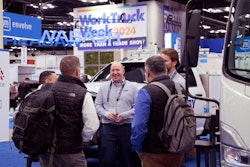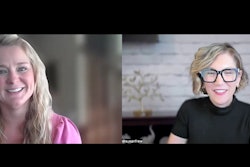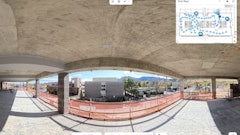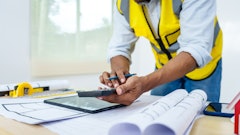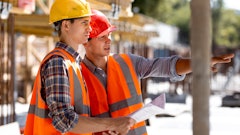
For Stacy Eakman, recovery is more than just breaking free from addiction—it’s about rediscovering the ability to live a life of purpose and meaning. As Partner of Alair Homes Kirkland, Stacy has not only overcome the personal struggles that once consumed him but also found a way to channel his journey into creating positive change in both his personal and professional life. His story is one of redemption, determination, and the profound impact of second chances.
In alignment with his values, Eakman supports organizations like SAFE Project, which are dedicated to helping individuals and workplaces embrace recovery-friendly environments. SAFE Project’s workplaces initiative provides essential tools and resources to reduce stigma around substance use disorder (SUD), promote recovery, and offer training for companies to better support employees who may be struggling with addiction.
Recovery: A Personal Definition
Recovery isn’t just about surviving—it’s about finding purpose, living with intention, and using one’s experiences to uplift others.
Eakman describes recovery in clear, personal terms: "I define recovery pretty simply. Freeing yourself from being hopelessly addicted to anything that you cannot control and being free enough that you can live life to your potential." For him, recovery is not just about abstaining from substances—it’s about reclaiming his future and realizing what he is truly capable of achieving.
Growing up in Yakima, Washington, Eakman was no stranger to hard work. His father was a home remodeling contractor and he quickly learned that life in construction could be grueling and unpredictable. Although he admired his father’s dedication, he knew he wanted more—a career, not just a job. His path, however, would take many twists before he found that career. In high school, Eakman was a straight-laced athlete, committed to his dream of playing baseball and staying away from drugs and alcohol. But by the time he entered Big Bend Community College (Moses Lake, Washington) everything had changed. What started as casual drinking and smoking weed soon spiraled into hardcore substance use, with pills like oxycontin gripping him by the age of 22.
Addiction took hold fast and hard. Eakman began stealing from his family, living out of his truck, and descending into a life he never imagined for himself. Yet, surprisingly, despite his close brushes with the law, he never faced jail time. During one fateful event, he pulled over in his car to sleep. First responders were dispatched. A sympathetic paramedic gave him an unexpected second chance, encouraging him to leave the scene before the police arrived.
It was one of many moments in his life that would later make him reflect on just how fortunate he had been.
Finding a New Path Through Treatment
By the time he was 28, Eackman had reached his lowest point. His family stood by him, and his uncle Dan, who had walked his own path of recovery, took him to treatment. That decision marked the beginning of a slow but steady climb toward a better future. He credits his family, particularly his father and uncle, who visited him regularly in treatment, for never giving up on him. Uncle Dan even paid for his treatment, allowing Eakman to focus fully on his recovery. He started with Alcoholics Anonymous, though he believes in multiple pathways to recovery, and his journey has included more than just one approach.
Even after treatment, the road wasn’t smooth. Financial troubles haunted him. He found himself on a “no checks list,” unable to open a business account due to his history of bounced checks. But in what Eakman calls a "God moment," a bank executive in Issaquah, Washington, agreed to help him open a small business savings account—albeit one with no check-writing privileges. That chance was all he needed. He completed his first major remodeling job, cashing his paycheck and proving himself trustworthy. Six months later, he earned his business debit card, marking the start of his professional comeback.
Building a Career & Giving Back
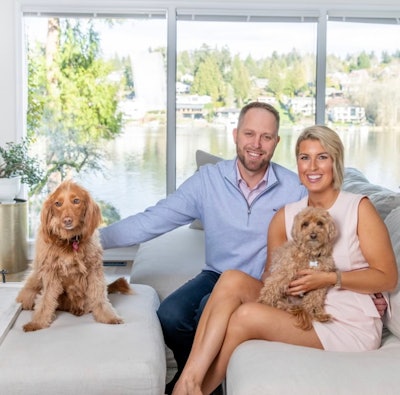 Founder Stacy Eakman, pictured with his wife Danica and their beloved dogs, embodying the heart and soul behind Alair Homes Kirkland.
Founder Stacy Eakman, pictured with his wife Danica and their beloved dogs, embodying the heart and soul behind Alair Homes Kirkland.
Eakman's success wasn’t just limited to business. He has also given back to his family in tangible ways, first hiring his mother, Karen, as his second employee, and then buying his parents a house. Even after all these years, Karen still works for the company. His ability to turn his life around and provide for his family is a testament to the power of recovery and the determination to leave a positive legacy behind.
"What it meant to me personally, is that I was able to function like a normal person," says Eakman. "I could focus on the good I could do in the world, instead of just existing and being a burden to society. I have been able to focus on what I can leave behind, instead of what I can take." His words reflect a deep desire to be of service to others, not just in his work, but in his life as a whole.
Recovery-Friendly Workplaces: Supporting the Journey
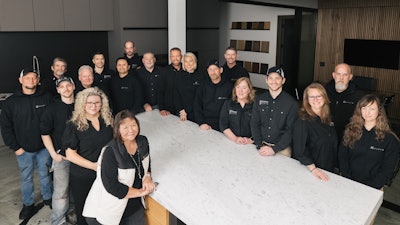 The dedicated team at Alair Homes Kirkland, is committed to bringing dreams to life through their exceptional craftsmanship and attention to detail.Alair Homes Kirkland
The dedicated team at Alair Homes Kirkland, is committed to bringing dreams to life through their exceptional craftsmanship and attention to detail.Alair Homes Kirkland
Supporting recovery in the workplace goes beyond just understanding addiction. It involves implementing programs that promote wellness, offering mental health resources, and making accommodations for those in treatment. By embracing these principles, companies can help their employees thrive and create a culture of compassion and respect. His leadership in this area serves as an example of how businesses can contribute to the well-being of their employees while remaining profitable and successful.
Today, Eakman is not only a business owner and a community leader but a living example of the power of recovery. He is most proud of his family, wife Danica, and son Kason. His journey from addiction to success is a reminder that no matter how far one falls, there is always a way back. His dedication to building homes and giving back to his community has made him a beacon of hope for others who are struggling.
With the support of recovery-friendly organizations like SAFE Project, workplaces can take proactive steps to reduce stigma, foster understanding, and ensure that individuals in recovery have the opportunity to succeed. Recovery isn’t just about surviving—it’s about finding purpose, living with intention, and using one’s experiences to uplift others. For Eakman, that means building a future where recovery and professional success go hand in hand, not just for himself but for everyone around him.







